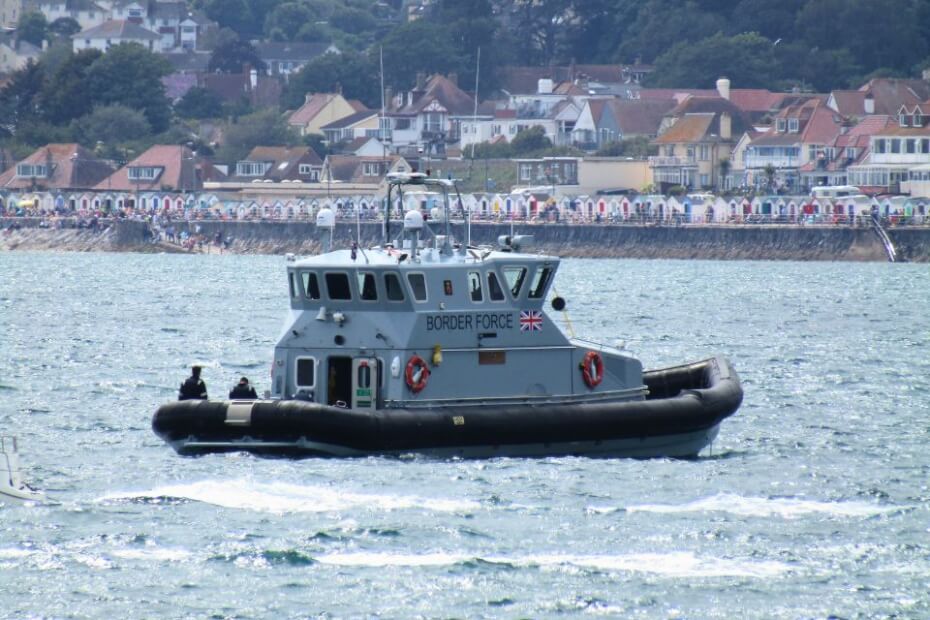
Despite a new United Kingdom (UK) law aimed at preventing migrant crossings, more people are still illegally arriving in the country through the English Channel than ever before.
In June 2024, the number of people trying to enter the UK this way reached a new high, as per a Reuters report.
Data from the UK’s Interior Ministry shows that 882 migrants arrived on 18 June, totaling more than 12,300 this year.
According to The Telegraph, the total number is 18 percent higher than the same time last year, with 10,472 migrant crossings.
It is also five percent higher than the same period in 2022, with 11,690 individuals arriving via small boats.
The new record also has the highest number of total migrant crossings in a single day since 2022.
The last highest one-day figure was recorded in November 2022, when 947 migrants arrived in a single day.
It also surpassed the highest number of 872 single-day arrivals recorded in September 2023.
In 2022, the UK hit a record number of migrants illegally coming to the UK, with 45,774 arrivals.
The number dropped by 36 percent in 2023, with a total of 29,437 migrant crossings.
This increase puts much pressure on the government ahead of the national elections on 4 July.
Curbing illegal migration and stopping small boat arrivals have been Prime Minister Rishi Sunak’s main pledges.
He has fought for the Rwanda Law to deter migrants from illegally arriving in the UK via small boats.
Rwanda Law aims to deter migrant crossings
Under Sunak’s leadership, the UK government introduced the Safety of Rwanda Act to discourage migrant crossings and illegal migration.
This law’s primary goal is to prevent people from making dangerous journeys across the English Channel in small boats and save lives.
It is also designed to break the business model of smugglers profiting from ferrying illegal migrants across the Channel.
By sending illegal migrants to Rwanda, the government hopes to make the UK less attractive to those trying to enter the country illegally.
The law allows the government to deport people who arrive in the UK illegally to Rwanda, where their requests for asylum will be assessed.
If their asylum claim is granted, they will remain in the East African country and make a new life there.
Criticism and opposition to the Rwanda Law
Human rights groups, lawyers, and politicians have opposed the Rwanda Law, saying it’s wrong and unfair.
The United Nations (UN) has expressed serious concerns and warned it could have a “harmful impact” on human rights and refugee protection.
Many argue that sending asylum seekers to a country they have no connection to is inhumane.
People worry that the law will not stop illegal migrant crossings and put vulnerable people in even more danger.
The opposition Labour Party has said it would scrap the Rwanda policy if elected, and establish a Border Security Command instead.
This would involve personnel from the police, domestic intelligence agencies, and prosecutors working with international agencies to stop people smuggling.
The opposition party also plans to create new returns and enforcement units to remove people from Britain who have no right to be there.
Growing migration crisis
The Rwanda Law is not the only step the UK government has taken to stop illegal migration and migrant crossings.
It has signed a cooperation agreement with the European Union (EU) against illegal migration.
The agreement sets a platform for coordinated actions between the UK’s Border Force and the EU’s Frontex across various areas.
This collaboration involves sharing information and intelligence on migration trends, border surveillance, document fraud, and managing returns and borders.
The two countries are also enhancing the skills of border agents through training, benefiting from each other’s effective strategies.
The UK and the EU are also collaborating on operational and technical levels, conducting research, and developing new technologies.
The UK government also works closely and has partnered with neighboring nations to combat illegal migration.
Despite these efforts, more people are still trying to cross the English Channel.
This shows that the government might need to find more effective ways to stop migrant crossings.

